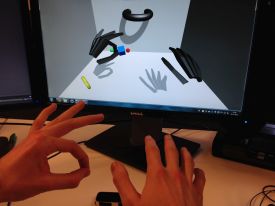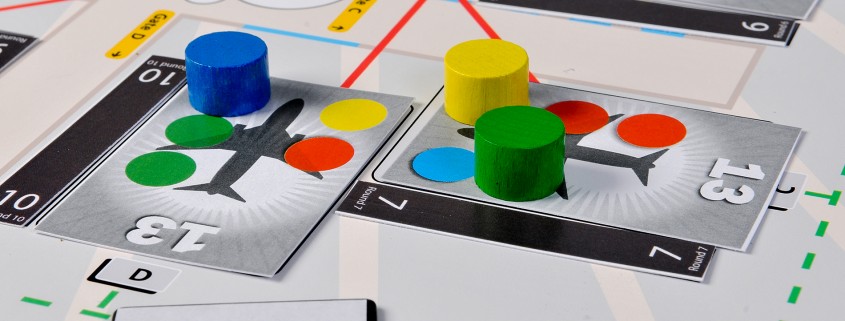 The NLR has created a framework that supports the efficient development of high quality serious games. Serious games offer possibilities to support processes of change and new ways of training.
The NLR has created a framework that supports the efficient development of high quality serious games. Serious games offer possibilities to support processes of change and new ways of training.
Serious games are rapidly gaining in popularity and for good reason: the games allow users to experiment and creatively solve problems. Moreover, users directly receive feedback on their input, allowing them to learn from their mistakes.
The NLR focuses on the development of serious games as a means of identifying and developing new possibilities for training. Gaming offers new ways of sharing knowledge and developing non-technical skills. Gaming can also be used to raise awareness of social and safety issues. Other benefits include cost savings and the fact that trainings can be done at a time of the users’ choosing. Serious gaming can serve as a continuation or supplement to (the often expensive) simulator based trainings.
Framework
The NLR’s Serious Games Framework (SGF) is comprised of a selection of tools that support developers during a serious game’s development process, from the concept to the delivery of the final product.
At SGF’s core is the Unity3D engine, a development environment in which 2D and 3D games are created for a wide range of platforms (for example iOS, Android, and Windows). It offers support for various off-the-shelf peripherals, as well as for online multiplayer games. SGF moreover records the players’ behaviour and saves this information for future evaluations.
Multi-faceted applications
Using the Serious Game Framework, the NLR developed an assessment game, titled ‘Behind Enemy Lines’, for the Dutch Ministry of Defence. In this innovative game, competencies relating to teamwork (namely communication, situational awareness, prioritization, and time-management) are automaticalle and objectively measured. This information can then be reflected on with an instructor to improve team performance.
Air Traffic Management
An additional application of serious games shows that games can be used to support change processes in Air Traffic Management (ATM). The NLR and T-Xchange, a partner company based in Enschede, developed the AeroGame for the SESAR SJU.
In ‘playing’ AeroGame, the participants (stakeholders in ATM) become aware of what the changes comprise of and a ‘buy-in’ is created so that they become more involved in the implementation process. This allows them to better prepare for the planned changes of the ATM system, changes that are needed to increase the capacity and efficiency of flights.
The first players of AeroGame were stakeholders from the airports, airline and government domains. They found the serious game a useful tool for supporting processes of change. The participants’ reactions were overwhelmingly positive: “It is an innovative way of working together”, “It supports motivation” …”, “valuable as a tool to work together and to convince others…”, “AeroGame has great potential to get all stakeholders involved in the future development of ATM.”
Visit also our serious gaming page.



